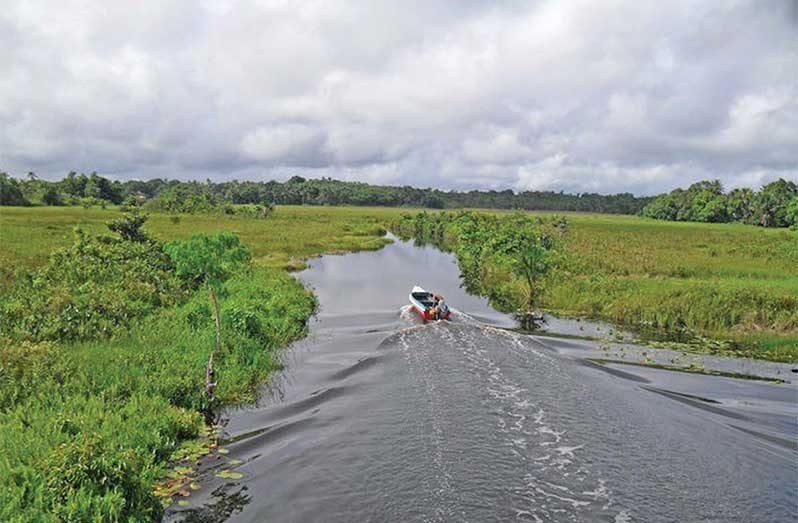THE University of Guyana (UG) is equipping agriculture and natural resources students with critical knowledge on environmental sustainability, and a particular focus on the growing threat of marine pollution.
Speaking at a symposium in celebration of Agriculture Month, Dr. Mark Ram, Senior Lecturer in UG’s Biology Department, warned that microplastics are emerging as a major environmental hazard. These tiny plastics, invisible to the naked eye, he said, are disrupting ecosystems, affecting marine life, and posing risks to human health.
“Some of these plastics resemble phytoplankton or zooplankton, so marine organisms ingest them thinking they are food,” Dr. Ram explained. “When we consume these fish, we become secondary consumers of these microplastics, which raises serious concerns for food safety.”
Dr. Ram highlighted the different types of microplastics—fibers, pellets, films, fragments, foams, and microbeads—and noted that their ingestion by fish can lead to behavioral changes, reduced growth, and reproductive challenges. He stressed that ongoing research is critical to fully understand the ecological and health impacts.
Guyana ranks among the top ten countries globally for plastic and marine pollution, with plastic bags and bottles frequently washing up in mangroves, and on mudflats and other habitats. The University of Guyana has begun studies to characterise microplastics in local fish, analysing factors such as size and colour to determine their origin and impact on marine organisms.
“This research is vital for protecting fisheries, sustaining livelihoods, supporting food security, and informing environmental policies,” Dr. Ram said.
Based on these findings, he’s recommended several measures: Integrating microplastic monitoring into fisheries management programmes in collaboration with the Ministry of Agriculture; raising awareness and providing training on plastic pollution; establishing proper disposal and recycling systems; creating facilities for plastic waste collection; strengthening regulations to reduce land-based plastic sources; supporting further research; and incorporating microplastic data into ecosystem-based fisheries management.
Through these efforts, UG aims to prepare students and the wider community to address the challenges posed by microplastic pollution while supporting sustainable development in Guyana’s agricultural and fisheries sectors.
UG highlights urgent threat of microplastics to marine life, food safety
SHARE THIS ARTICLE :
Facebook
Twitter
WhatsApp


.jpg)











